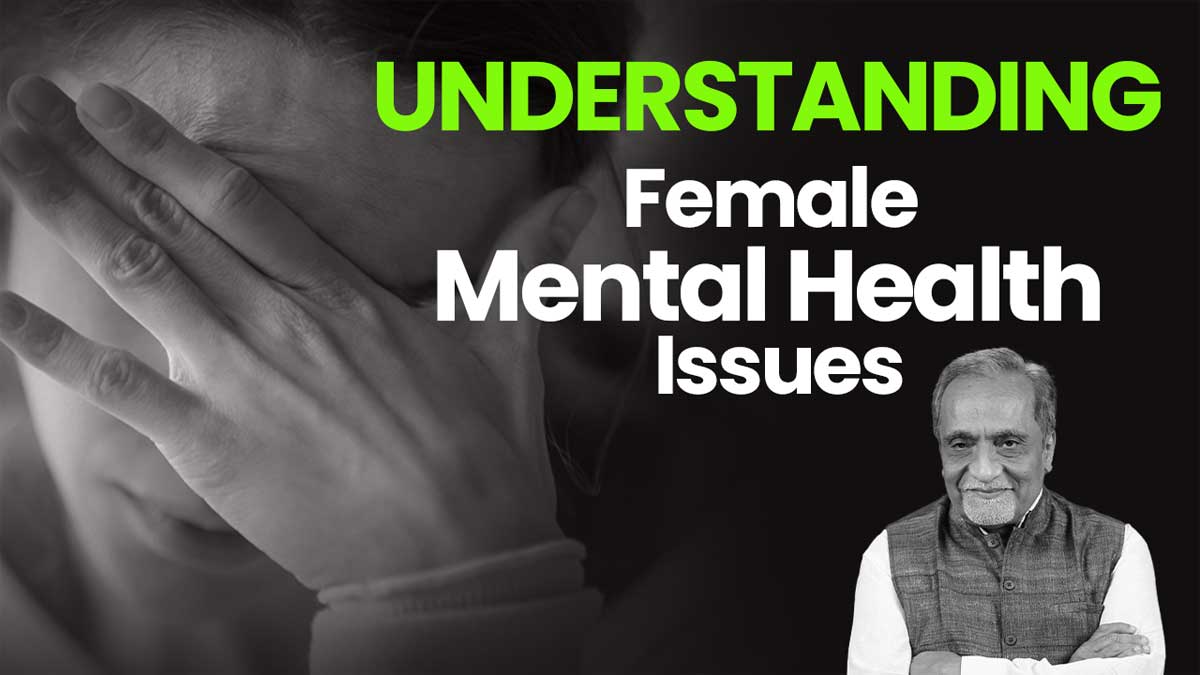
Mental health is a diverse topic and can present unique challenges in anyone. While mental health problems can affect people of any gender, however these problems often go unnoticed in women. This week in our Mental Health A-Z series, Dr Nimesh Desai, Senior Consultant Psychiatrist and Former Director, IHBAS, Delhi, explains female mental health issues and how to deal with them.
Table of Content:-
Reasons Behind Female Mental Health Problems

“Mental health problems are usually the same in all genders, however in some cases these problems in women may be different due to some reasons and need to be tackled accordingly,” said Dr Desai. He listed the following reasons behind female mental health problems:
- Biological/hormonal
- Psychological
- Social
- Economical
Also Read: Mental Health A-Z: Expert Explains Depression, Its Symptoms, Treatment, And Prevention
Biological and Hormonal Influences

“A woman experiences various hormonal fluctuations throughout her life. The emotional disturbances that accompany women from puberty to menopause, such as Premenstrual Dysphoric Disorder (PMDD) during menstruation and postpartum depression after childbirth, are common,” highlighted Dr Desai.
“A female experiencing irritation, and despair. weakness and less interest in social activities should not be immediately considered abnormal. In severe cases, one should identify this as a disorder and seek treatment through medication and counselling”, added Dr Desai.
Dr Desai emphasised, “Recognising these disturbances and differentiating them from ordinary mood swings is vital. Collaboration between gynaecologists and mental health professionals in the post-delivery period is essential to ensure the well-being of both mother and child.”
“When a woman enters menopause (around 40-50 years), there are many biological and hormonal changes as well as changes in family and societal groups. Providing a supportive atmosphere, counselling, and, if necessary, depression treatment during this period is crucial”, added Dr Desai.
Also Read: Mental Health A-Z: Expert Explains Childhood Mental Health Problems And How To Deal With Them
Psychological Factors
According to the Anxiety and Depression Association of America, depression is 2-3 times as common in women than in males. “However, this does not mean they are weaker,” said Dr Desai. He stated the primary reasons behind it as:
- Biological or hormonal reasons are common in women's depression
- Psychological/social exploitation and deprivation of women
“As society progresses towards gender equity, the hope is that rates of depression may undergo positive changes”, added Dr Desai.

Substance Abuse
Dr Desai highlighted, “An alarming increase in smoking, alcohol consumption, and substance abuse among younger women demands attention. It is important to consider the mental health issues of these women and make sure they receive the necessary medical help and support”, he added.
Social Determinants of Mental Health
Dr Desai advocated, “Women's mental health problems are often overlooked, leading to a lack of proper identification and support. It is our duty to safeguard female mental health, be it soft psychological problems or mental health problems. There is a need to eliminate gender discrimination to ensure access to medical help.
[Disclaimer: The information in this article is provided by a healthcare expert and is for informational purposes only. If you are dealing with any mental health issues, seek medical help immediately.]
Also watch this video
How we keep this article up to date:
We work with experts and keep a close eye on the latest in health and wellness. Whenever there is a new research or helpful information, we update our articles with accurate and useful advice.
Current Version
Nov 21, 2023 13:54 IST
Published By : Chanchal Sengar